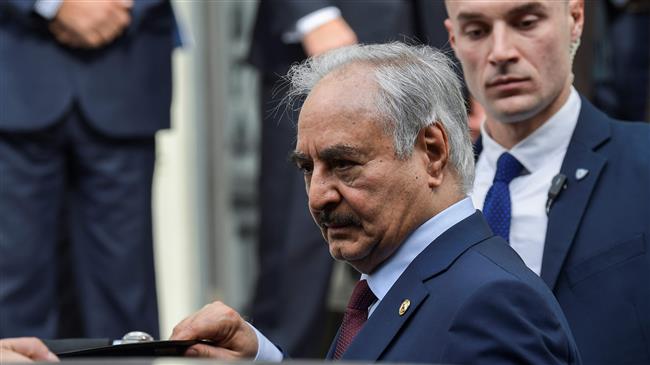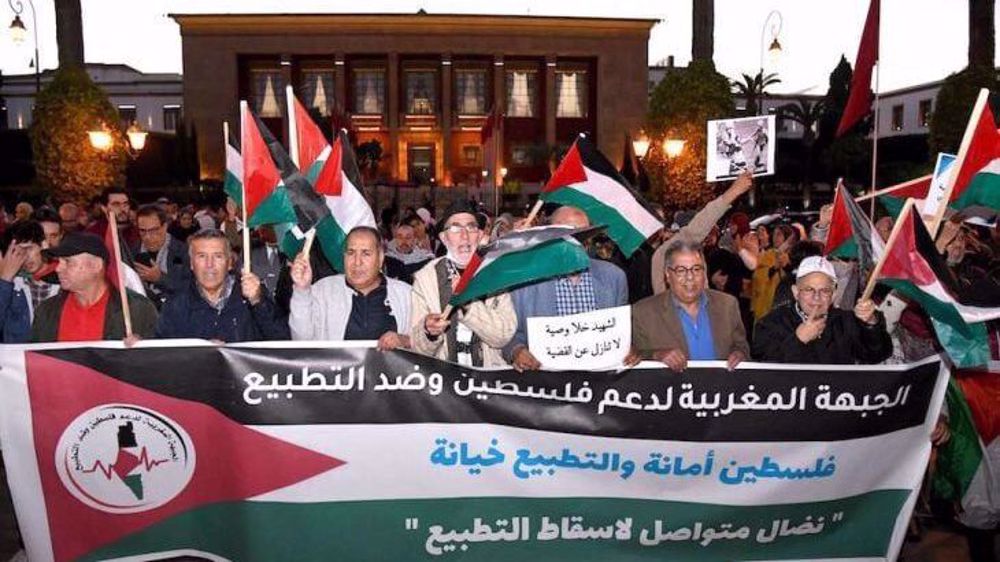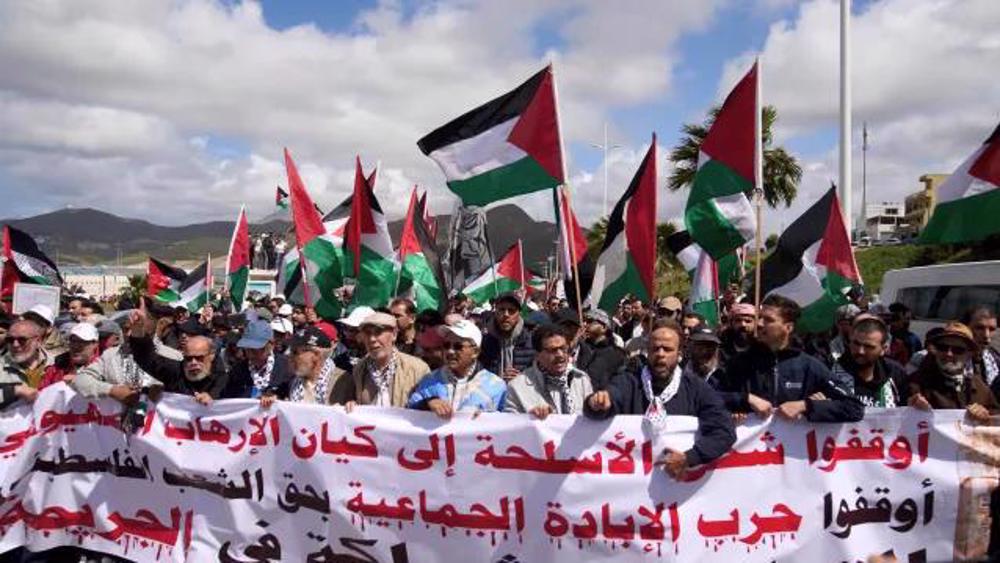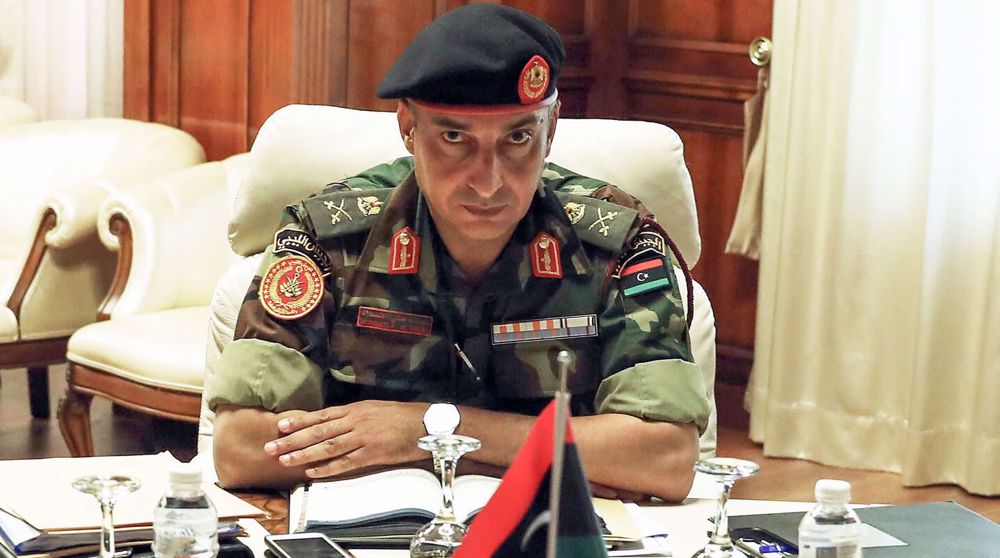Khalifa Haftar is not a force for good in Libya
By Robert Inlakesh
Robert Inlakesh is a journalist, writer and political analyst, who has lived in and reported from the occupied Palestinian West Bank. He has written for publications such as Mint Press, Mondoweiss, MEMO, and various other outlets. He specializes in analysis of the Middle East, in particular Palestine-Israel. He also works for Press TV as a European correspondent.
There is currently much dispute over which side, in Libya’s ongoing civil war, is a force for good in the region and which side should be treated with the most legitimacy. Many will argue that the LNA (Libyan National Army) forces, commanded by warlord Khalifa Haftar, are indeed what is needed for Libya to see progress and to make its way back to operating as a normal State in the Middle East, however, there are many problems with this argument.
For those who value the independence of Arab peoples - including the people of Northern Africa - Khalifa Haftar is not a figure to revere. His LNA forces have aligned themselves with a number of regional enemies of the Palestinian people and also the people of the wider region, including Saudi Arabia, UAE, Egypt, Israel and France. Using the airpower of both Egypt and the UAE as an integral part to play in Haftar’s plot to control Libya.
Who is Commander Khalifa Haftar?
The now internationally well known leader of the LNA opposition forces in Libya, Khalifa Haftar, is not a new figure unknown to the Libyan people. He first emerged to prominence as a colonel under Muammar Gaddafi’s rule, aiding Gaddaffi in his 1969 military coup which removed King Idris from power.
After enjoying a large public following in Libya, he was eventually arrested as a prisoner of war during the Chadian-Libya war and was disavowed by Muammar Gaddafi. The condemnation coming from Gaddafi due to Haftar’s military operation having violated an agreement brokered between Libya and Chad at the time. Khalifa Haftar feeling he was betrayed by his leader, then went on to form a militia, based in Zaire, which was aimed at overthrowing Gaddafi.
As part of a CIA-sponsored deal with Kenya, in 1990, Khalifa Haftar was then welcomed into the United States, being given citizenship to the country. Once in the US, Haftar built close connections within the nations’ intelligence services. In fact, when Haftar resided in the US, he chose to live in close proximity to the CIA’s headquarters.
Khalifa Haftar continued then to support a number of attempts to overthrow the Libyan leader, Muammar Gaddafi, the most notable case being in the 1996 uprising.
Later, come 2011, Khalifa Haftar became an influential figure in the overthrow of Gaddafi, leading to the bloody chaos we have seen since, in Libya. Keep in mind that this was all possible due to NATO forces having supplied both air support and also weapons to Libya’s opposition militias - who were fighting Gaddafi - leading to their eventual victory. Meaning that the legacy of Khalifa Haftar is one of Western collusion, aiding in the mass murder of Libyan’s, for personal political gain. Leading him towards his current campaign.
Khalifa Haftar and his ‘Friend’ Israel
After forming an alliance with Russia, Khalifa Haftar has formed alliances and garnered the support of the UAE, Saudi Arabia, Jordan, Egypt, France and even Israel.
Many have attempted to dispute the open support for Haftar’s LNA from Israel, however, in 2014 Haftar openly stated that he wouldn’t mind cooperating with the Israelis. In 2018, it then emerged that the LNA was directly supplied with Israeli weapons. The UAE mediated between the two, resulting in the supply of Sniper rifles and night vision equipment to LNA forces, according to reports.
An IDF (Israeli military) source even reportedly defacto referred to Haftar as a friend of Israel, stating the following: "A friend of our friend - and an enemy of our enemy - is our friend, and Haftar is a friend of Egypt, Jordan and UAE. He also fights ISIS."
Israel evidently has an interest in building new alliances with Sunni Muslim States in the Middle East, working to achieve new trade relationships and to destroy the Palestinian people. Israel has now signed a deal with Egypt’s illegal coup leader, el-Sisi, under which Egypt will buy its gas from Israel. Israel has also worked to get cheap oil from a number of different areas in the region, after losing 77% of its required oil needs from the Kirkuk oil fields (in Iraq). Israel lost the formerly Kurdish controlled oil, sold to it through Turkish ports, which was taken out of the hands of the KRG (Kurdish Regional Government) following an Iraqi offensive against northern Iraq.
Now Israel may be seeking to do a deal with a willing partner in Libya, this willing partner seemingly being Khalifa Haftar. Already Haftar’s forces preside over the countries resources, but delivering a final blow to the UN-recognized GNA government in Tripoli, would be a complete takeover of the country.
Khalifa Haftar is often referred to as Libya’s el-Sisi and this is exactly what Haftar’s ally’s are betting on, in order to extend the influence of the pro-Western block in the Middle East.
Why people are deceived by Khalifa Haftar and the LNA
With recent decision by Turkey to deploy forces - including ex-Syrian opposition fighters - to Libya in support of the GNA government, many supporters of the Syrian Government are taking the side of the LNA in Libya. However, applying their distaste for certain actors in the war of Syria is not considering the wider picture in the case of Libya.
The justification of those who support the Russian role in aiding the Syrian government, to defeat the opposition forces which included al-Qaeda and Daesh, is that the internationally-recognized government of Syria asked for its allies help. If consistent and we don’t apply a double standard, this is what is happening with the GNA-Turkey alliance.
This is not to say that the GNA, or the Turkish government for that matter, are angels. But the fact of the matter is that there are regional players which seek to gain from the victories of Khalifa Haftar in Libya and this is something that has to be considered before taking any given side in this conflict. One thing can be concluded however, Haftar is far from a good force for peace and independence in the Middle East.
(The views expressed in this article do not necessarily reflect those of Press TV.)
‘No two-hour war’: Iran vows immediate retaliation to any attack
Pezeshkian: US must end provocations if it seeks genuine diplomacy
Iran summons German ambassador over Merz’s ‘low-minded’ remarks
Iran's Armed Forces warn EU of ‘consequences’ of IRGC designation
Iran FM: EU’s blacklisting of IRGC a ‘major strategic mistake’
EU blacklists IRGC in legally flawed move irrespective of consequences
VIDEO | Press TV's news headlines
VIDEO | Afghanistan opens first specialized cancer hospital













 This makes it easy to access the Press TV website
This makes it easy to access the Press TV website